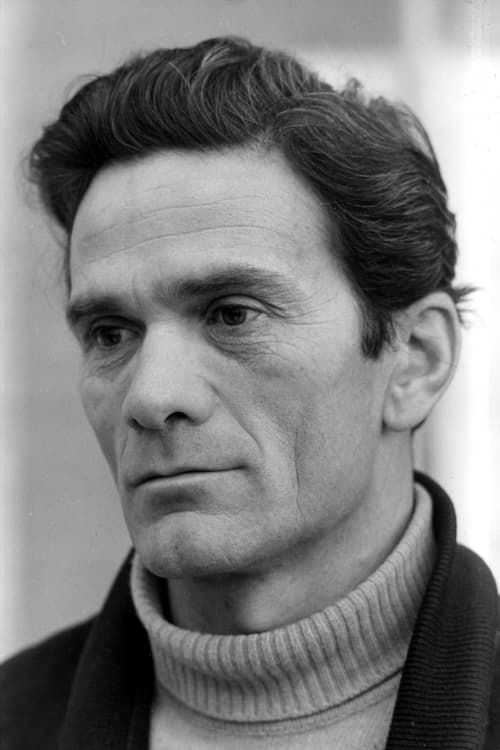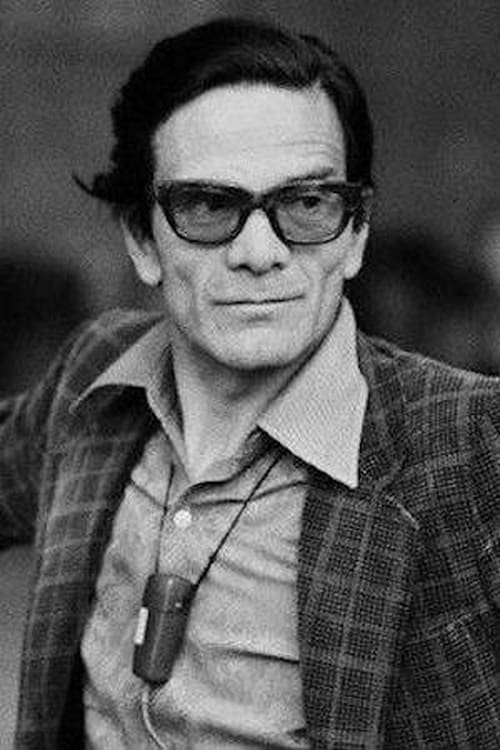
Himself
A 16 mm film recovered from the French director's boxes, with images of Varda, Pasolini and New York. Pasolini is shown walking in the Big Apple (where he went to present 'Hawks and Sparrows').
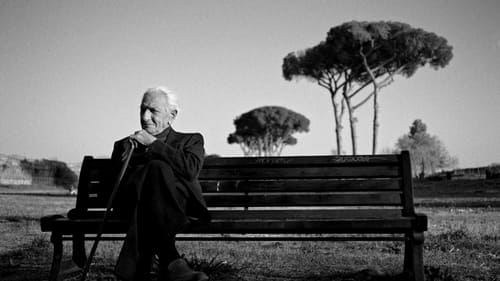
Self - Filmmaker (archive footage)
The life of the legendary Italian photojournalist Paolo Di Paolo through his photographs, which capture the essence of a fascinating and turbulent Italy, the one inhabited by Anna Magnani and Pier Paolo Pasolini, a country that no longer exists.

3,700 km of coastline, a Fiat 1100, and an old travel diary, those are the ingredients for Pepe Danquart’s documentary. Following the footsteps of the great Italian thinker Pier Paolo Pasolini, the filmmaker gains a deep insight into the social reality of present-day Italy. The country is massively affected by globalization, migration and the phenomenon of mass tourism, which, more than ever, is characterised by the same hedonistic conformity that Pasolini lamented more than fifty years ago. Ahead of me the South is a poetic contemporary document, a kaleidoscopic picture of the Italy of today.
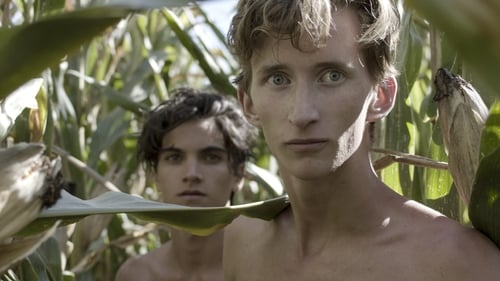
Self (archive footage) (uncredited)
A unique chance to explore Pier Paolo Pasolini's youth through the voice and the body of his direct cousin, writer and poet Nico Naldini.
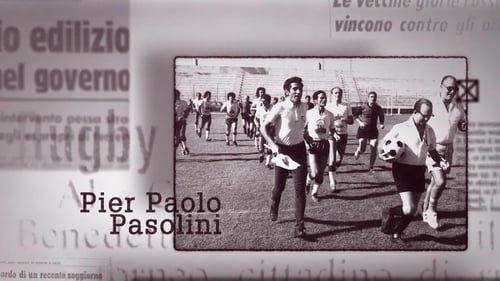
On September 14, 1975, Pier Paolo Pasolini played his last game of football, before his death, in San Benedetto del Tronto. “The last match of Pasolini” starts from a pretext of a football game, to tell a historical period that was fundamental for the whole of Italy, with its contradictions and tragedies, through an apparently playful vision of Pasolini, but that allows us to understand better the importance of the Italian poet and director.
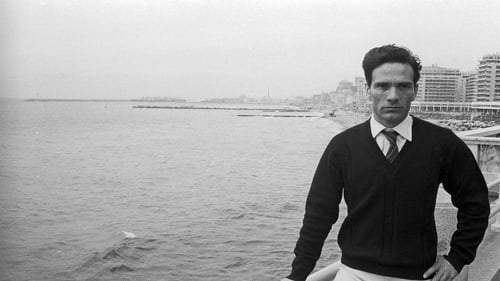
Himself (archive footage)
In the summer of 1959, as a correspondent for “Successo” magazine, Pasolini traveled along the Italian coast. In 1963, he documented Italian sex behavior, explained in “Love Meetings,” a 1964 film. In the winter of 1970-71, he witnessed the plight of the most impoverished Italian population and the innocents who suffered the boot of state power. After these three journeys, he concluded that Italian society had changed dramatically for the worse throughout all those years.


A documentary that recounts the impressively lucid visions and gazes with which Pasolini described and experienced the lands from his Casarsa eastward, through Idria, the Grado lagoon and finally Istria. The border, understood as a physical, historical and geographic but also metaphorical limit, is an interesting key to recount Pasolini's life: a journey that allows us to tell some lesser-known sides of the life of a great intellectual of the last century, who with keen anticipation glimpsed profound truths about the cultural and social changes taking place.

Interactive documentary about Pier Paolo Pasolini.

Se stesso
A journey back through Dacia Maraini's and her trips around the world with her close friends cinema director Pier Paolo Pasolini and opera singer Maria Callas. An in-depth story of this fascinating woman's life. Maraini's memories come alive through personal photographs taken on the road as well as her own Super 8 films shot almost thirty years ago.

Self (archive)
This elegiac essay explores the year leading up to Pier Paolo Pasolini's murder in 1975. Through staging scenes from his last, unfinished novel, to exploring his polemical essays, and his first and last film, this experimental biography documents the final words of one of the most important filmmakers of the 20th century.

Editor
An attempt to reconstruct the complete version of Pier Paolo Pasolini's segment of La rabbia.

Writer
An attempt to reconstruct the complete version of Pier Paolo Pasolini's segment of La rabbia.

Self (archive footage)
An attempt to reconstruct the complete version of Pier Paolo Pasolini's segment of La rabbia.

Director
An attempt to reconstruct the complete version of Pier Paolo Pasolini's segment of La rabbia.

Self (archive footage)
Based upon Vincenzoni's biography, "Pane e cinema", the documentary traces the story of the screen play writer who invented many stories that became blockbusters throughout the world.

The story of La Rabbia by Pier Paolo Pasolini and Giovanni Guareschi, a movie lost in the archives of a laboratory in Rome, and recently re-discovered.

Self (archive footage)
This revealing documentary from director Philippe Kohly examines the storied life of renowned soprano Maria Callas, from her troubled childhood in New York City to her scandal-laden but triumphant international career in opera. Featuring archival interviews with Callas herself and footage of contemporaries such as her lover Aristotle Onassis, this celebration of "La Divina" pays tribute to her enduring legacy some three decades after her death.
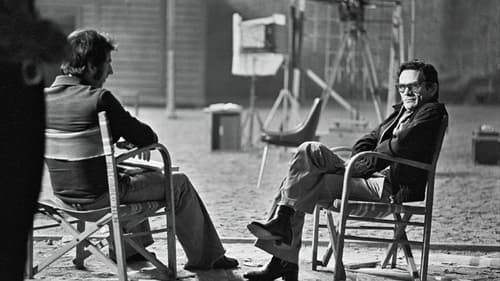
Se stesso
We are on the set of "Salò or the 120 days of Sodom". Pasolini lets a small camera team led by the journalist Gideon Bachmann follow him around engaging him in a long and extraordinary interview/conversation. The interview turns into a long, clear-sighted and violent attack on society that accompanies photos of the set in a surprising juxtaposition of film and reality, revealing Pasolini's metaphorical portrait of modernity.

Interviewee (archive)
Documentary about the making of Pier Paolo Pasolini's The Canterbury Tales (1972), and particularly focusing on the many edits and cut scenes that were made before the film's release.

A sequence of unpublished photographs by Deborah Beer taken during the filming of the torture scenes on the set of "Salo, or the 120 Days of Sodom" is accompanied by the voice - recorded by Gideon Bachmann - of Pier Paolo Pasolini who directs the actors: a portrait of the director and his way of working that testifies its determined and passionate “filmmaking"

Interviewee
A documentary featuring archival footage of Pasolini discussing his views on language, film, and modern society.

Some of the scenes cut from the final editing of Medea by Pier Paolo Pasolini, fortunately found by L’Officina - a historic Roman film club born in the 1970s - on the initiative of Cinemazero in Pordenone have been preserved and digitized at the Cineteca del Friuli. These materials, with the care of the Pasolini scholar Luciano De Giusti, have been reassembled, accompanied by texts / readings and original music by Paolo Corberi: here are the "Visions of the Medea (traces of a dreamed film)", now a very important document to reconstruct the creative process of production and reliving the poetic / lyrical aura of the film's protagonists and places, including the lagoon of Grado (GO).

A thirty-three-minute documentary featuring interviews with director Pier Paolo Pasolini, actor-filmmaker Jean-Claude Biette, and Pasolini friend Ninetto Davoli.

Self (archive footage)
It is a chronological compilation of film clips, awards ceremonies and brief period interviews gathered by journalist Sandro Lai.

Archive footage

Self (archive footage)
Federico Fellini was one of the most individual and thought provoking directors who based most of his films upon his own reflections, dreams, life events and fantasies, who did not convey any special message for humanity but regarded cinema simply as entertainment. Is there an answer to everything? Can it possibly be? If yes, then life can no longer be so curious, so dynamic, so creative...

Book
Adapted from an autobiographical book by Pier Paolo Pasolini.

Himself
A documentary about the Italian cinema as art form and industry.

Short Story
Fausto and Gilda who are married for a long time and love themselves deeply. But Gilda dies leaving Fausto alone with their 8-year-old daughter and a governess. Being shaken, he retreats to his country house. His female doctor is the only one who visits him. He starts being plagued every night by wet dreams, visions and hallucinations of some women and his wife, who insistently asks him to join him. After some time, Fausto can't distinguish any longer what is reality or dream.

Screenplay

Self (archive footage)
Traces the life of Anna Magnani, her creations, her successes, her triumphs, her boycotted career, her nonconformism, her anxieties, her generosity ... Punctuated with photos that tell her career in theater and cinema, Extracts of films, this documentary portrait also gives the floor to his friends and relatives, from Roberto Rossellini to Marcello Mastroianni, through Federico Fellini.

Lui-même

Director
Four corrupted fascist libertines round up 9 teenage boys and girls and subject them to 120 days of sadistic physical, mental and sexual torture.

Writer
Four corrupted fascist libertines round up 9 teenage boys and girls and subject them to 120 days of sadistic physical, mental and sexual torture.
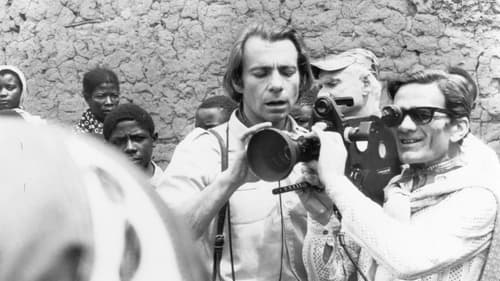
Self (uncredited)
The director presents takes and scenes filmed on location in Africa for a film-that-never-was, a black Oresteia.

Editor
The director presents takes and scenes filmed on location in Africa for a film-that-never-was, a black Oresteia.

Writer
The director presents takes and scenes filmed on location in Africa for a film-that-never-was, a black Oresteia.

Director
The director presents takes and scenes filmed on location in Africa for a film-that-never-was, a black Oresteia.

Writer
The capital of Yemen, the city of Sana'a, holds an important part of history within its walls filled with medieval architecture and culture. But that same culture was about to disappear with the country's modernization which came after the civil war in the 1960's. To impeach such modern invasion, director Pasolini pledges to UNESCO for the recognition of Sana'a as a World Heritage Site.

Narrator (voice)
The capital of Yemen, the city of Sana'a, holds an important part of history within its walls filled with medieval architecture and culture. But that same culture was about to disappear with the country's modernization which came after the civil war in the 1960's. To impeach such modern invasion, director Pasolini pledges to UNESCO for the recognition of Sana'a as a World Heritage Site.

Director
The capital of Yemen, the city of Sana'a, holds an important part of history within its walls filled with medieval architecture and culture. But that same culture was about to disappear with the country's modernization which came after the civil war in the 1960's. To impeach such modern invasion, director Pasolini pledges to UNESCO for the recognition of Sana'a as a World Heritage Site.

Writer
The final part of Pasolini's Trilogy of Life series is rich with exotic tales of slaves and kings, potions, betrayals, demons and, most of all, love and lovemaking in all its myriad forms. Mysterious and liberating, this is an exquisitely dreamlike and adult interpretation of the original folk tales.

Director
The final part of Pasolini's Trilogy of Life series is rich with exotic tales of slaves and kings, potions, betrayals, demons and, most of all, love and lovemaking in all its myriad forms. Mysterious and liberating, this is an exquisitely dreamlike and adult interpretation of the original folk tales.

Himself
Documentary about the Italian cities Orte and Sabaudia.

Writer
Locked up in prison and awaiting execution, bored young vagabonds Bernardino and Mammone pass their time competing in a vulgar storytelling competition, relating indecent accounts about castration, unsavory testicles and an atypical threesome. Not intended for the faint of heart, this audacious piece of moviemaking focuses on tales of jealousy, murder and uncontrollable desires.
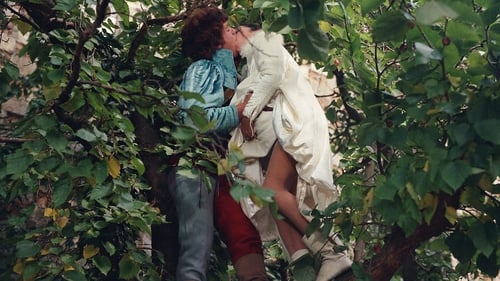
Music Supervisor
Glimpses of Chaucer penning his famous work are sprinkled through this re-enactment of several of his stories.

Screenplay
Glimpses of Chaucer penning his famous work are sprinkled through this re-enactment of several of his stories.

Geoffrey Chaucer
Glimpses of Chaucer penning his famous work are sprinkled through this re-enactment of several of his stories.

Director
Glimpses of Chaucer penning his famous work are sprinkled through this re-enactment of several of his stories.

In this movie, director Volker Koch wants to reveal "petty-bourgeois fixations of consciousness and late capitalist myths of happiness". The protagonists: an American hustler, a drama student, a Munich waitress and her boyfriend who hope for money, a career and luck from a trip to Rome together.
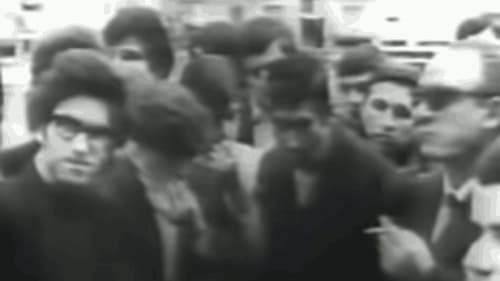
Director
On December 12th, 1969 a bomb went off at the Piazza Fontana in Milan that killed 16 people and injured 84. Railway worker and anarchist activist Giuseppe Pinelli was picked up, along with other anarchists, for questioning regarding the attack. He was held and interrogated for three days, longer than Italian law specified that people could be held without seeing a judge. Just before midnight on December 15, 1969 Pinelli was seen to fall to his death from a fourth floor window of the Milan police station. Although officially deemed a suicide, the reporter who watched the fall from the street maintained that he was pushed. Three police officers interrogating Pinelli were put under investigation in 1971 for murder but charges were dropped because of lack of evidence.

Idea
On December 12th, 1969 a bomb went off at the Piazza Fontana in Milan that killed 16 people and injured 84. Railway worker and anarchist activist Giuseppe Pinelli was picked up, along with other anarchists, for questioning regarding the attack. He was held and interrogated for three days, longer than Italian law specified that people could be held without seeing a judge. Just before midnight on December 15, 1969 Pinelli was seen to fall to his death from a fourth floor window of the Milan police station. Although officially deemed a suicide, the reporter who watched the fall from the street maintained that he was pushed. Three police officers interrogating Pinelli were put under investigation in 1971 for murder but charges were dropped because of lack of evidence.
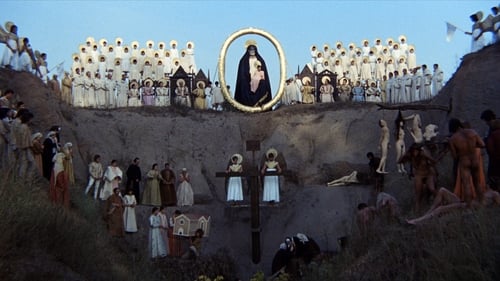
Allievo di Giotto
A young Sicilian is swindled twice, but ends up rich; a man poses as a deaf-mute in a convent of curious nuns; a woman must hide her lover when her husband comes home early; a scoundrel fools a priest on his deathbed; three brothers take revenge on their sister's lover; a young girl sleeps on the roof to meet her boyfriend at night; a group of painters wait for inspiration; a crafty priest attempts to seduce his friend's wife; and two friends make a pact to find out what happens after death.

Writer
A young Sicilian is swindled twice, but ends up rich; a man poses as a deaf-mute in a convent of curious nuns; a woman must hide her lover when her husband comes home early; a scoundrel fools a priest on his deathbed; three brothers take revenge on their sister's lover; a young girl sleeps on the roof to meet her boyfriend at night; a group of painters wait for inspiration; a crafty priest attempts to seduce his friend's wife; and two friends make a pact to find out what happens after death.

Director
A young Sicilian is swindled twice, but ends up rich; a man poses as a deaf-mute in a convent of curious nuns; a woman must hide her lover when her husband comes home early; a scoundrel fools a priest on his deathbed; three brothers take revenge on their sister's lover; a young girl sleeps on the roof to meet her boyfriend at night; a group of painters wait for inspiration; a crafty priest attempts to seduce his friend's wife; and two friends make a pact to find out what happens after death.
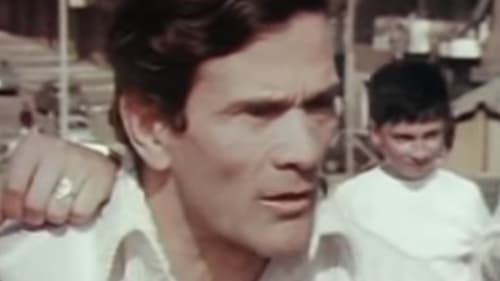
Documentary about Italian movie director Pier Paolo Pasolini, with interviews with some of his actors and friends.
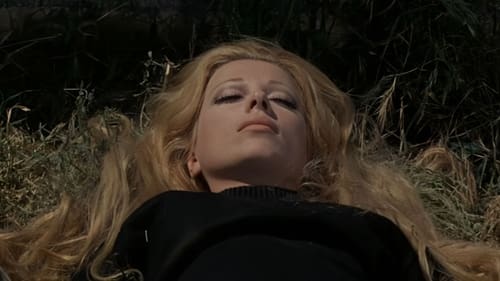
Supervising Technical Director
Two anarchistic brothers live by petty thievery and try to recover from their Catholic upbringing. Bandiera and Rabbino were children when they pushed their drunk of a father out of a window for killing their pet sheep. When a girl is raped by her father, she is brought by young "rescuers" to the home of the two brothers who then watch their friends take advantage of her sexually. The brothers take her in, and the three live happy and celibate if not uneventful lives until the brother's are sent to jail for stealing.

Screenplay
Two anarchistic brothers live by petty thievery and try to recover from their Catholic upbringing. Bandiera and Rabbino were children when they pushed their drunk of a father out of a window for killing their pet sheep. When a girl is raped by her father, she is brought by young "rescuers" to the home of the two brothers who then watch their friends take advantage of her sexually. The brothers take her in, and the three live happy and celibate if not uneventful lives until the brother's are sent to jail for stealing.

Story
Two anarchistic brothers live by petty thievery and try to recover from their Catholic upbringing. Bandiera and Rabbino were children when they pushed their drunk of a father out of a window for killing their pet sheep. When a girl is raped by her father, she is brought by young "rescuers" to the home of the two brothers who then watch their friends take advantage of her sexually. The brothers take her in, and the three live happy and celibate if not uneventful lives until the brother's are sent to jail for stealing.

Writer
Based on the plot of Euripides' Medea. Medea centers on the barbarian protagonist as she finds her position in the Greek world threatened, and the revenge she takes against her husband Jason who has betrayed her for another woman.

Director
Based on the plot of Euripides' Medea. Medea centers on the barbarian protagonist as she finds her position in the Greek world threatened, and the revenge she takes against her husband Jason who has betrayed her for another woman.
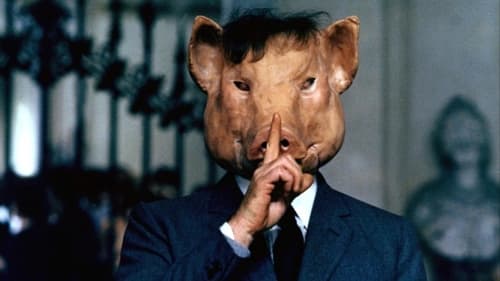
Writer
Two dramatic stories. In an undetermined past, a young cannibal (who killed his own father) is condemned to be torn to pieces by some wild beasts. In the second story, Julian, the young son of a post-war German industrialist, is on the way to lie down with his farm's pigs, because he doesn't like human relationships.

Director
Two dramatic stories. In an undetermined past, a young cannibal (who killed his own father) is condemned to be torn to pieces by some wild beasts. In the second story, Julian, the young son of a post-war German industrialist, is on the way to lie down with his farm's pigs, because he doesn't like human relationships.

Screenplay
A beautiful smiling guy's walking on the streets of a city, bringing with him a large paper poppy. The boy is the goodness and innocence of youth, which is soon cut short by human wickedness.

Director
A beautiful smiling guy's walking on the streets of a city, bringing with him a large paper poppy. The boy is the goodness and innocence of youth, which is soon cut short by human wickedness.

Screenplay
A beautiful smiling guy's walking on the streets of a city, bringing with him a large paper poppy. The boy is the goodness and innocence of youth, which is soon cut short by human wickedness. Indeed, while the merry boy is walking, the episode shows the evil done by man during the Second World War.

Director
A beautiful smiling guy's walking on the streets of a city, bringing with him a large paper poppy. The boy is the goodness and innocence of youth, which is soon cut short by human wickedness. Indeed, while the merry boy is walking, the episode shows the evil done by man during the Second World War.
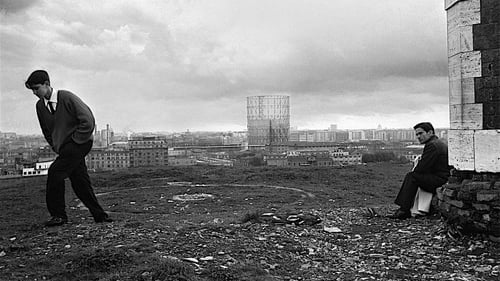
Writer
Five short stories with contemporary settings. In New York, people are indifferent to derelicts sleeping on sidewalks, to a woman's assault in front of an apartment building, and to a couple injured in a car crash. A man, stripped of his identity, dies in bed with actors expressing his agony. A cheerful, innocent young man walking a city street in a time of war pays a price for this innocence. A couple talks about cinema while it watches another couple talk of love and truth on the eve of one character's return to Cuba. Striking students take over a university classroom; an argument follows about revolution or incremental change.

Director
Five short stories with contemporary settings. In New York, people are indifferent to derelicts sleeping on sidewalks, to a woman's assault in front of an apartment building, and to a couple injured in a car crash. A man, stripped of his identity, dies in bed with actors expressing his agony. A cheerful, innocent young man walking a city street in a time of war pays a price for this innocence. A couple talks about cinema while it watches another couple talk of love and truth on the eve of one character's return to Cuba. Striking students take over a university classroom; an argument follows about revolution or incremental change.

Writer
The tragic and self-destructive sexual battle between a man and his wife. A drama for the desperate struggle of those who are different against the normality that rejects the margins. The couple is preparing to consume a relationship of extreme sadomasochism. Recorded theatre production.

Director
The tragic and self-destructive sexual battle between a man and his wife. A drama for the desperate struggle of those who are different against the normality that rejects the margins. The couple is preparing to consume a relationship of extreme sadomasochism. Recorded theatre production.

Screenplay
A wealthy Italian household is turned upside down when a handsome stranger arrives, seduces every family member and then disappears. Each has an epiphany of sorts, but none can figure out who the seductive visitor was or why he came.

Director
A wealthy Italian household is turned upside down when a handsome stranger arrives, seduces every family member and then disappears. Each has an epiphany of sorts, but none can figure out who the seductive visitor was or why he came.

Writer
A 1968 short documentary film by Pier Paolo Pasolini where he visits India in the search of a king who could give up his body to feed a starving tiger.

Self
A 1968 short documentary film by Pier Paolo Pasolini where he visits India in the search of a king who could give up his body to feed a starving tiger.

Director
A 1968 short documentary film by Pier Paolo Pasolini where he visits India in the search of a king who could give up his body to feed a starving tiger.

Writer
The film consists of six short stories created by different directors, but all the stories share one thing: a warm irony to current events.

Director
The film consists of six short stories created by different directors, but all the stories share one thing: a warm irony to current events.

Writer
Some puppets come to life in a theater with no windows. This time the puppets interpret William Shakespeare's Othello.

Director
Some puppets come to life in a theater with no windows. This time the puppets interpret William Shakespeare's Othello.
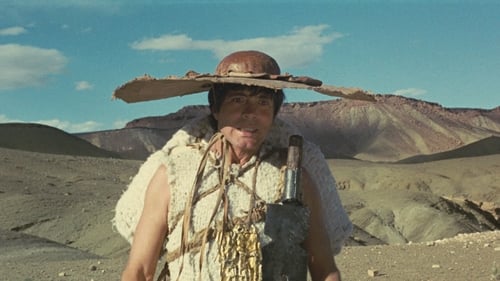
High Priest (uncredited)
In pre-war Italy, a young couple have a baby boy. The father, however, is jealous of his son - and the scene moves to antiquity, where the baby is taken into the desert to be killed. He is rescued, given the name Edipo (Oedipus), and brought up by the King and Queen of Corinth as their son. One day an oracle informs Edipo that he is destined to kill his father and marry his mother. Horrified, he flees Corinth and his supposed parents - only to get into a fight and kill an older man on the road...

Writer
In pre-war Italy, a young couple have a baby boy. The father, however, is jealous of his son - and the scene moves to antiquity, where the baby is taken into the desert to be killed. He is rescued, given the name Edipo (Oedipus), and brought up by the King and Queen of Corinth as their son. One day an oracle informs Edipo that he is destined to kill his father and marry his mother. Horrified, he flees Corinth and his supposed parents - only to get into a fight and kill an older man on the road...

Director
In pre-war Italy, a young couple have a baby boy. The father, however, is jealous of his son - and the scene moves to antiquity, where the baby is taken into the desert to be killed. He is rescued, given the name Edipo (Oedipus), and brought up by the King and Queen of Corinth as their son. One day an oracle informs Edipo that he is destined to kill his father and marry his mother. Horrified, he flees Corinth and his supposed parents - only to get into a fight and kill an older man on the road...

Father Juan
A Mexican community is slaughtered by Confederate troops; the lone survivor, a boy, is taken in by a preacher. Years later, the boy is now a soft-spoken, devout young man with perfect shooting skills (despite being a pacifist). On his journey to help his half-sister out of a complicated situation, he crosses paths with the men who killed his family, unbeknownst to him.
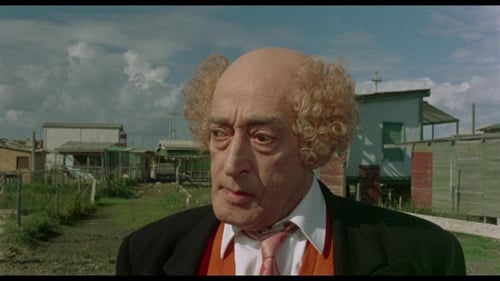
Story
Five short stories loosely dealing with the roles of women in society. A superstar actress travels to a mountain resort, only to evoke jealousy from women and lust from men. A woman offers to take an injured man to the hospital. A widowed father and his son seek for a new wife/mother. A man seeks revenge for a woman's honor. A bored housewife tries to explain to her husband that he's not as romantic as he used to be.

Screenplay
Five short stories loosely dealing with the roles of women in society. A superstar actress travels to a mountain resort, only to evoke jealousy from women and lust from men. A woman offers to take an injured man to the hospital. A widowed father and his son seek for a new wife/mother. A man seeks revenge for a woman's honor. A bored housewife tries to explain to her husband that he's not as romantic as he used to be.

Writer
Ciancicato Miao and his son, after the death of his wife and mother by mushroom poisoning, are dedicated to find her replacement and have no luck until they find a mysterious deaf mute green-haired woman.

Director
Ciancicato Miao and his son, after the death of his wife and mother by mushroom poisoning, are dedicated to find her replacement and have no luck until they find a mysterious deaf mute green-haired woman.

Director
Five short stories loosely dealing with the roles of women in society. A superstar actress travels to a mountain resort, only to evoke jealousy from women and lust from men. A woman offers to take an injured man to the hospital. A widowed father and his son seek for a new wife/mother. A man seeks revenge for a woman's honor. A bored housewife tries to explain to her husband that he's not as romantic as he used to be.

Self
In this documentary, giants of italian cinema such as Rossellini, De Sica, Fellini and Zavattini talk about the importance of cinema after WW2, and about huge moments of social rebellion. This movie gives the floor to the creators of italian neorealism.

Himself
Portrait of Pier Paolo Pasolini and his literary and cinematographic activity in the proletarian Rome.

Himself
Ezra Pound, an acclaimed modern American poet living in Rapallo, was tried for treason because of his radio broadcasts extolling Mussolini. This is Pasolini's interview with him.

Director
Ezra Pound, an acclaimed modern American poet living in Rapallo, was tried for treason because of his radio broadcasts extolling Mussolini. This is Pasolini's interview with him.
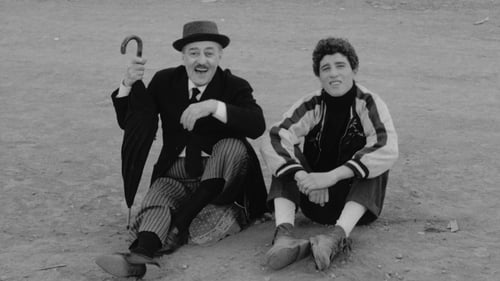
Story
A man and his son take an allegorical stroll through life with a talking bird that spouts social and political philosophy.

Screenplay
A man and his son take an allegorical stroll through life with a talking bird that spouts social and political philosophy.

Director
A man and his son take an allegorical stroll through life with a talking bird that spouts social and political philosophy.

Writer
In 1963, accompanied by a newsreel photographer and a Catholic priest, Piero Paolo Pasolini traveled to Palestine to investigate the possibility of filming his biblical epic The Gospel According to Matthew in its approximate historical locations. Edited by The Gospel‘s producer for potential funders and distributors, Seeking Locations in Palestine features semi-improvised commentary from Pasolini as its only soundtrack. As we travel from village to village, we listen to Pasolini’s idiosyncratic musings on the teachings of Christ and witness his increasing disappointment with the people and landscapes he sees before him. Israel, he laments, is much too modern. The Palestinians, much too wretched; it would be impossible to believe the teachings of Jesus had reached these faces. The Gospel According to Matthew was ultimately filmed in Southern Italy. Mel Gibson would use some of the same locations forty years later for The Passion of the Christ.

Self (uncredited)
In 1963, accompanied by a newsreel photographer and a Catholic priest, Piero Paolo Pasolini traveled to Palestine to investigate the possibility of filming his biblical epic The Gospel According to Matthew in its approximate historical locations. Edited by The Gospel‘s producer for potential funders and distributors, Seeking Locations in Palestine features semi-improvised commentary from Pasolini as its only soundtrack. As we travel from village to village, we listen to Pasolini’s idiosyncratic musings on the teachings of Christ and witness his increasing disappointment with the people and landscapes he sees before him. Israel, he laments, is much too modern. The Palestinians, much too wretched; it would be impossible to believe the teachings of Jesus had reached these faces. The Gospel According to Matthew was ultimately filmed in Southern Italy. Mel Gibson would use some of the same locations forty years later for The Passion of the Christ.

Director
In 1963, accompanied by a newsreel photographer and a Catholic priest, Piero Paolo Pasolini traveled to Palestine to investigate the possibility of filming his biblical epic The Gospel According to Matthew in its approximate historical locations. Edited by The Gospel‘s producer for potential funders and distributors, Seeking Locations in Palestine features semi-improvised commentary from Pasolini as its only soundtrack. As we travel from village to village, we listen to Pasolini’s idiosyncratic musings on the teachings of Christ and witness his increasing disappointment with the people and landscapes he sees before him. Israel, he laments, is much too modern. The Palestinians, much too wretched; it would be impossible to believe the teachings of Jesus had reached these faces. The Gospel According to Matthew was ultimately filmed in Southern Italy. Mel Gibson would use some of the same locations forty years later for The Passion of the Christ.
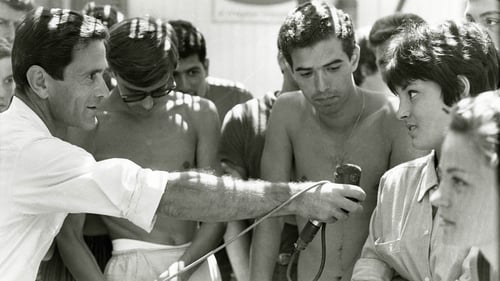
Self - Interviewer (uncredited)
Microphone in hand, Pier Paolo Pasolini asks Italians to talk about sex, apparently their least favorite subject: he asks children if they know where do babies come from, asks old and young women about gender equality, and asks both genders if a woman's virginity still matters, how do they view homosexuals, if sex and honor are related, if divorce should be legal, if they support the recent abolition of brothels, etc. He interviews workers, intellectuals, students, rural farmers, the bourgeoisie, and other different people, painting a vivid portrait of Italy in the years of the Economic Boom, suspended between modernity and tradition.

Director
Microphone in hand, Pier Paolo Pasolini asks Italians to talk about sex, apparently their least favorite subject: he asks children if they know where do babies come from, asks old and young women about gender equality, and asks both genders if a woman's virginity still matters, how do they view homosexuals, if sex and honor are related, if divorce should be legal, if they support the recent abolition of brothels, etc. He interviews workers, intellectuals, students, rural farmers, the bourgeoisie, and other different people, painting a vivid portrait of Italy in the years of the Economic Boom, suspended between modernity and tradition.
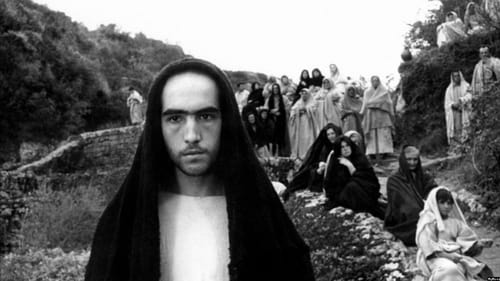
Writer
This biblical drama from the Catholic Marxist director focuses on the teachings of Jesus, including the parables that reflect their revolutionary nature. As Jesus travels along the coast of the Sea of Galilee, he gradually gathers more followers, leading him into direct conflict with the authorities.

Director
This biblical drama from the Catholic Marxist director focuses on the teachings of Jesus, including the parables that reflect their revolutionary nature. As Jesus travels along the coast of the Sea of Galilee, he gradually gathers more followers, leading him into direct conflict with the authorities.
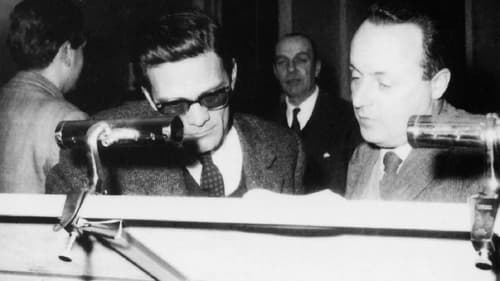
Writer
Documentary footage (from the 1950s) and accompanying commentary to attempt to answer the existential question, Why are our lives characterized by discontent, anguish, and fear? The film is in two completely separate parts, and the directors of these respective sections, left-wing Pier Paolo Pasolini and conservative Giovanni Guareschi, offer the viewer contrasting analyses of and prescriptions for modern society. Part I, by Pasolini, is a denunciation of the offenses of Western culture, particularly those against colonized Africa. It is at the same time a chronicle of the liberation and independence of the former African colonies, portraying these peoples as the new protagonists of the world stage, holding up Marxism as their "salvation", and suggesting that their "innocent ferocity" will be the new religion of the era. Guareschi's part, by contrast, constitutes a defense of Western civilization and a word of hope, couched in traditional Christian terms, for man's future.

Editor
Documentary footage (from the 1950s) and accompanying commentary to attempt to answer the existential question, Why are our lives characterized by discontent, anguish, and fear? The film is in two completely separate parts, and the directors of these respective sections, left-wing Pier Paolo Pasolini and conservative Giovanni Guareschi, offer the viewer contrasting analyses of and prescriptions for modern society. Part I, by Pasolini, is a denunciation of the offenses of Western culture, particularly those against colonized Africa. It is at the same time a chronicle of the liberation and independence of the former African colonies, portraying these peoples as the new protagonists of the world stage, holding up Marxism as their "salvation", and suggesting that their "innocent ferocity" will be the new religion of the era. Guareschi's part, by contrast, constitutes a defense of Western civilization and a word of hope, couched in traditional Christian terms, for man's future.

Director
Documentary footage (from the 1950s) and accompanying commentary to attempt to answer the existential question, Why are our lives characterized by discontent, anguish, and fear? The film is in two completely separate parts, and the directors of these respective sections, left-wing Pier Paolo Pasolini and conservative Giovanni Guareschi, offer the viewer contrasting analyses of and prescriptions for modern society. Part I, by Pasolini, is a denunciation of the offenses of Western culture, particularly those against colonized Africa. It is at the same time a chronicle of the liberation and independence of the former African colonies, portraying these peoples as the new protagonists of the world stage, holding up Marxism as their "salvation", and suggesting that their "innocent ferocity" will be the new religion of the era. Guareschi's part, by contrast, constitutes a defense of Western civilization and a word of hope, couched in traditional Christian terms, for man's future.

Screenplay
Four short films by four different directors dealing with the principles of modern life.

Director
Four short films by four different directors dealing with the principles of modern life.
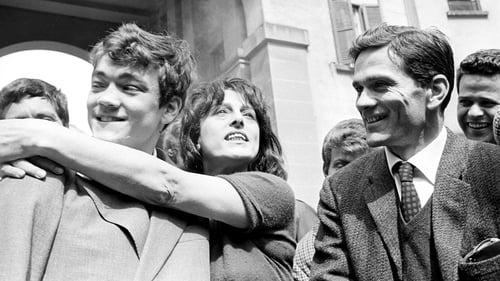
Story
After years spent working as a prostitute in her Italian village, middle-aged Mamma Roma has saved enough money to buy herself a fruit stand so that she can have a respectable middle-class life and reestablish contact with the 16-year-old son she abandoned when he was an infant. But her former pimp threatens to expose her sordid past, and her troubled son seems destined to fall into a life of crime and violence.

Screenplay
After years spent working as a prostitute in her Italian village, middle-aged Mamma Roma has saved enough money to buy herself a fruit stand so that she can have a respectable middle-class life and reestablish contact with the 16-year-old son she abandoned when he was an infant. But her former pimp threatens to expose her sordid past, and her troubled son seems destined to fall into a life of crime and violence.

Director
After years spent working as a prostitute in her Italian village, middle-aged Mamma Roma has saved enough money to buy herself a fruit stand so that she can have a respectable middle-class life and reestablish contact with the 16-year-old son she abandoned when he was an infant. But her former pimp threatens to expose her sordid past, and her troubled son seems destined to fall into a life of crime and violence.
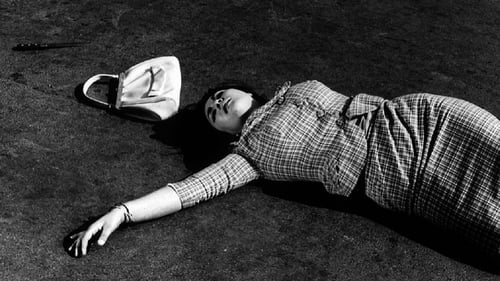
Story
Roman police detectives interrogate a series of potential perpetrators in their struggle to determine whom to arrest for the brutal murder of a beautiful prostitute whose body is discovered in a park on the day of a torrential rainstorm. One by one, the prime suspects -- girl-crazy teenager Nino, pickpocket Canticchia, a soldier on leave, a tourist and a pimp -- recount the events of the day to the police, each insisting he is innocent.
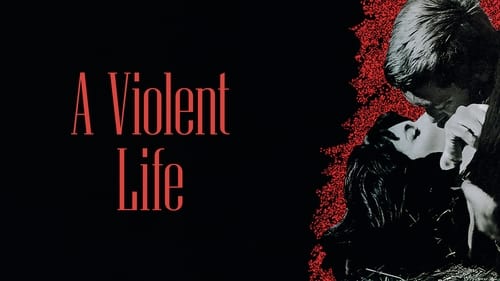
Novel
Tommaso Puzzilli is a boy who grew up in the suburb of Pietralata outside Rome. Not having a job, Tommaso and his friends are committing crimes to make money.
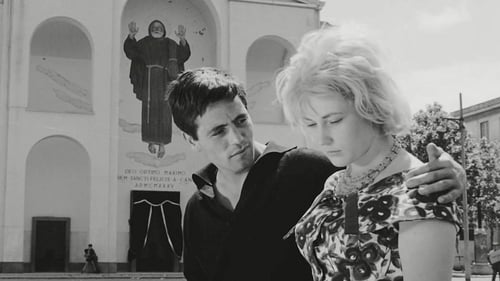
Story
A pimp with no other means to provide for himself finds his life spiralling out of control when his prostitute is sent to prison.

Screenplay
A pimp with no other means to provide for himself finds his life spiralling out of control when his prostitute is sent to prison.

Director
A pimp with no other means to provide for himself finds his life spiralling out of control when his prostitute is sent to prison.
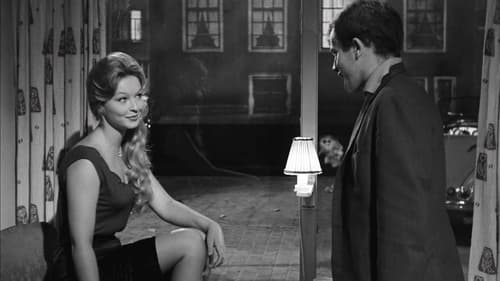
Screenplay
A romantic drama partially set in Amsterdam, this standard tale starts out in a mining area in Holland where conditions are about as rough as they get. Two of the miners, Italians Federico and Vincenzo take off together for the city's red-light district, where the women pose in windows for prospective customers. There the duo meet Else and Carrel who are willing to leave their windows to spend a weekend at a resort with the two men. Soon Else has fallen in love with Vincenzo and the future of the two hookers, as well as the miners, seems to look brighter.

Writer
A group of young thugs decides to spend New Year on the streets of Milan.
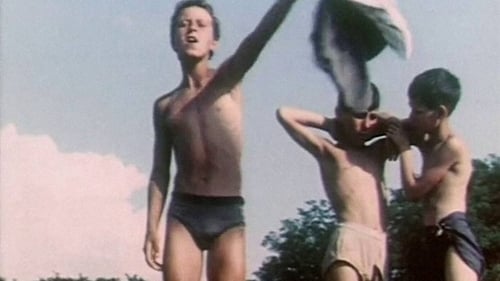
Writer
On a hot summer day, a group of boys of the Roman suburbs play and laugh in one of the many rivers that surround the city. The camera scrutinizes them, approaches them, reveals the gestures and glances, wraps them in a sort of visual dance, while the words of the commentary (entrusted to the poetic sensibility of Pier Paolo Pasolini) narrate the stories, desires, dreams, the future.
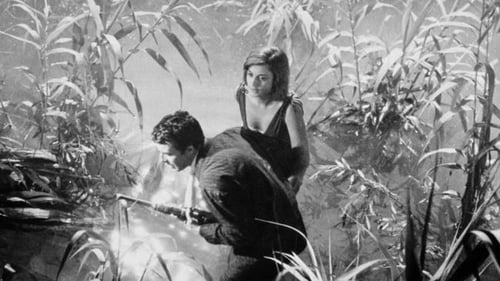
Monco
Alvaro Cosenza, also known as the Hunchback from Quarticciolo, during Rome's occupation by Nazis in 1943, decides to revolt.

Writer
A unique documentary on the traditional dirge in Griko, an ancient language of Salento.
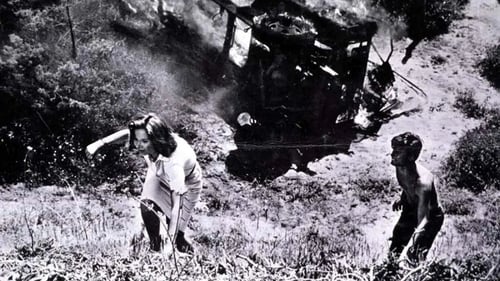
Screenplay
The ironic study of a young man's poignant adventures and sensual adventures...based on "Roman Tales" by Alberto Moravia.

Screenplay
Italy signed the armistice and in the general confusion a corporal decides to bring the tank back from the coast to the barracks.
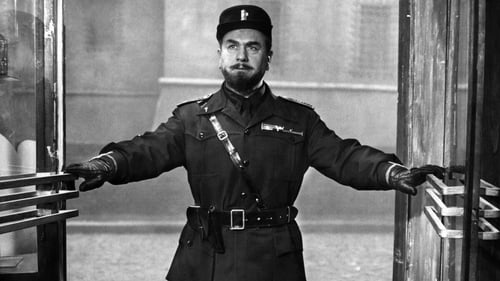
Screenplay
1943. The affair between Anna, unhappily married to wheelchair-bound Pino, and deserter Franco unfolds in foggy Ferrara, intertwining with the power struggle taking place within local Fascist ranks that culminates in a massacre of civilians, including Franco's father – Pino sees it all from his window, but will he tell anyone?
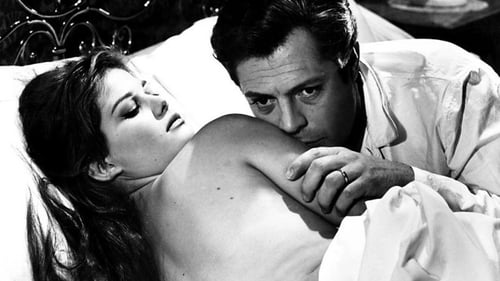
Screenplay
Problems arise for Antonio Magnano when he is unable to consummate his marriage to the beautiful Barbara Puglisi and his virility is called into question. Despite the fact that he loves his beautiful wife and they have otherwise been happily married for a year, his problem becomes a source of contention for all concerned.
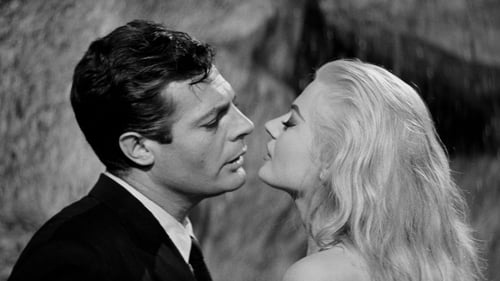
Screenplay
Journalist and man-about-town Marcello struggles to find his place in the world, torn between the allure of Rome's elite social scene and the stifling domesticity offered by his girlfriend, all the while searching for a way to become a serious writer.

Story
Two young people trickle, steal and exploit prostitutes.

Writer

Self
A four-part documentary series about the Italian director Federico Fellini. Episode 1: His Childhood, His Beginnings; Episode 2: His First Films; Episode 3: His Films with Giulietta Masina; Episode 4: "La dolce vita" and Neorealism.
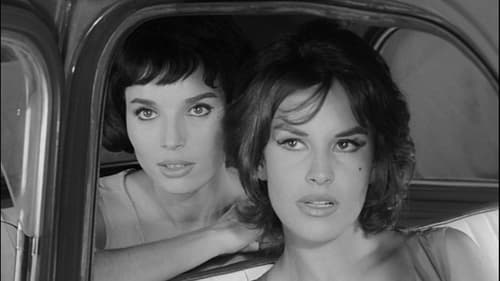
Screenplay
The exploits of three young Roman criminals are chronicled in this socially conscious drama. The young men commit petty crimes all day begin with arms theft, and culminating with a night with three streetwalkers. After their pleasure, the boys try to cheat the hookers, but they ladies are smarter than that and have stolen their cash ahead of time. It's back to the city for the boys, where they continue their destructive games...

Novel
The exploits of three young Roman criminals are chronicled in this socially conscious drama. The young men commit petty crimes all day begin with arms theft, and culminating with a night with three streetwalkers. After their pleasure, the boys try to cheat the hookers, but they ladies are smarter than that and have stolen their cash ahead of time. It's back to the city for the boys, where they continue their destructive games...

Writer

Screenplay
In a small Italian town, the local youngsters realize that their youth is coming to an end and marriage will soon follow. They gather together for one last time in an attempt to revive their younger days, but this comes to a dismal conclusion. Gradually it dawns on the group that childhood is over and the next stage in human growth must be faced.

Writer
The life, the problems, the hopes of the ragazzi of the suburbs of Rome. Ignored by the city, these young men spontaneously express their vitality, their violence, their willingness to put themselves at risk. They are at the center of "Ragazzi di vita", the first novel by Pier Paolo Pasolini, author of the text of this documentary.

Screenplay
Rome, 1957. A woman, Cabiria, is robbed and left to drown by her boyfriend, Giorgio. Rescued, she resumes her life and tries her best to find happiness in a cynical world. Even when she thinks her struggles are over and she has found happiness and contentment, things may not be what they seem.
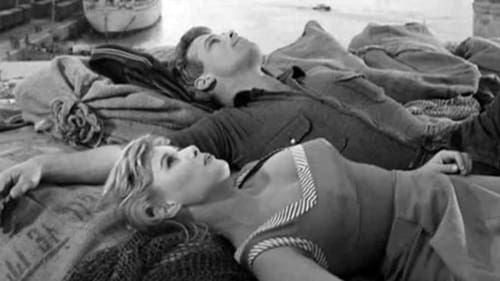
Screenplay
For the 17-year-old Mariza, there is no other house than the train station in Civitavecchia. Here, an orphaned girl lives early after the death of her father, a railwayman; here she earns additionally at the station buffet, selling ice cream to passengers of passing trains. Beautiful and brisk, she was accustomed to the admiration of others and perfectly mastered the art of coquetry, but Marise’s heart remains calm until the young sailor Angelo, who is in a hurry on her first voyage, leaves the train on the platform on a sunny Sunday morning.

Story
For the 17-year-old Mariza, there is no other house than the train station in Civitavecchia. Here, an orphaned girl lives early after the death of her father, a railwayman; here she earns additionally at the station buffet, selling ice cream to passengers of passing trains. Beautiful and brisk, she was accustomed to the admiration of others and perfectly mastered the art of coquetry, but Marise’s heart remains calm until the young sailor Angelo, who is in a hurry on her first voyage, leaves the train on the platform on a sunny Sunday morning.

Writer
At the end of the war, he was hired by Edison and in 1951 he made a film on all the important hydroeletrical plants built in that period. In the following years, Olmi directed around 40 documentaries, including La diga del ghiacciaio, Pattuglia di Passo San Giacomo, Tre fili fino a Milano, Michelino 1aB (written by Goffredo Parise), Manon finestra 2 and Grigio (whose screenplay was written by Pier Paolo Pasolini).

Writer
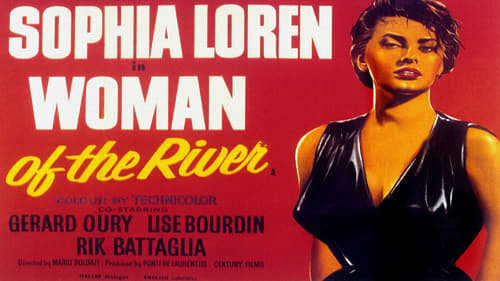
Dialogue
When peasant girl Nives is deserted by smuggler Gino Lodi, she betrays him to the police. Police officer Enzo Cinti, who loves Nives, traces her to the Po River cane-fields, where she is working as a cutter to support herself and an infant son, and warns her that Gino has escaped from prison and is seeking revenge. She rejects his offer to protect her. Gino finds Nives, mourning the drowning death of their son. He surrenders himself to the police and then walks at Nives' side in the funeral procession.

Screenplay
When peasant girl Nives is deserted by smuggler Gino Lodi, she betrays him to the police. Police officer Enzo Cinti, who loves Nives, traces her to the Po River cane-fields, where she is working as a cutter to support herself and an infant son, and warns her that Gino has escaped from prison and is seeking revenge. She rejects his offer to protect her. Gino finds Nives, mourning the drowning death of their son. He surrenders himself to the police and then walks at Nives' side in the funeral procession.

Author
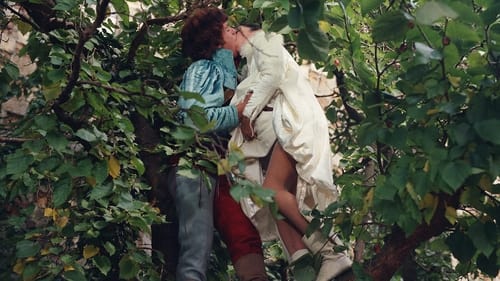
Writer
Pier Paolo Pasolini's controversial medieval Trilogy of Life includes The Decameron (1971), The Canterbury Tales (1972) and Arabian Nights (1974).

Director
Pier Paolo Pasolini's controversial medieval Trilogy of Life includes The Decameron (1971), The Canterbury Tales (1972) and Arabian Nights (1974).

Writer
In the spring of 1970, between the African Orestiade and The Decameron, Pasolini shot a film for which he wrote a commentary in verses but never finished editing. The film was born as a typical Pasolini intervention: filming the strike of the garbage collectors in Rome, who at the time worked in dramatic health conditions, and filming the humility of their daily work, amidst the waste and scraps of society, in the squares and in the streets. Pasolini also filmed the faces of garbage collectors engaged in claims discussions and the result was an extraordinary anthropological picture of an unknown humanity.

Director
In the spring of 1970, between the African Orestiade and The Decameron, Pasolini shot a film for which he wrote a commentary in verses but never finished editing. The film was born as a typical Pasolini intervention: filming the strike of the garbage collectors in Rome, who at the time worked in dramatic health conditions, and filming the humility of their daily work, amidst the waste and scraps of society, in the squares and in the streets. Pasolini also filmed the faces of garbage collectors engaged in claims discussions and the result was an extraordinary anthropological picture of an unknown humanity.
